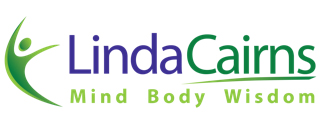With 34% of all deaths in Australia and 40% of all deaths in New Zealand being due to cardiovascular disease, it is vital to do everything you can to keep your heart healthy. There are many factors that may increase your risk of heart disease, including
• Eating a diet high in saturated and trans fats
• Being overweight
• Not exercising
• Having high cholesterol
• Certain health conditions, such as diabetes
• Cigarette smoking
The Truth About Cholesterol
This may surprise you, but cholesterol itself is not bad for you. In fact, cholesterol is a normal component of your body and is needed to keep you healthy. Cholesterol is found in the bloodstream and in all cells of your body.Cholesterol is an important substance, as it is used to produce hormones and other important compounds within the body. It’s normal to have cholesterol, but problems can arise when you have too much cholesteroland/or too much of the “bad” cholesterol.
Cholesterol – The Good, the Bad and the Ugly
There are two main forms of cholesterol: LDL and HDL. LDL is the “bad” cholesterol and when too much of this form of cholesterol is in the blood, it can clog up
your arteries, increasing your risk of heart attack and/ or stroke. HDL is the “good” cholesterol: HDL actually helps lower your risk of developing heart disease.
Eggs – Not as Bad as they’re Cracked Up to be
Do you remember being told that eggs are bad for cholesterol? A century ago, it was discovered that high cholesterol levels are associated with an
increased risk for heart disease. This triggered numerous health warnings to avoid foods naturally rich in cholesterol, like eggs. What we now know
is that blood cholesterol levels go up for many different reasons, not just from eating foods which homeopath gold coast contain cholesterol. Eggs are in fact a highly nutritious food, containing a good source of protein, omega-3 and vitamins and minerals, making them a good addition to a healthy, balanced diet.
Cutting the Fat
Just like cholesterol, not all fat is bad. It’s actually good tohave some fat in your diet. Polyunsaturated fats (e.g. from fish oil) and monounsaturated fats (e.g. olive oil) are good fats, which may actually help reduce levels of “bad” cholesterol (LDL) and increase “good” cholesterol (HDL). Saturated and trans fats (e.g. from fatty meats and deep fried food) on the other hand are “bad” fats, which can increase cholesterol. Therefore, to keep your heart healthy, it is better to increase the amount of good fats in your diet and decrease the “bad” fats, rather than cutting out fat all together.
Cholesterol – It’s Not All Bad News
If you have more of the “bad” cholesterol, it’s not all bad news, as there are many things that can be done to improve your cholesterol:
• Doing regular exercise has been shown to reduce your risk of heart disease, as it makes your heart work more effectively and helps maintain cardiovascular health.
• Eat foods high in the good monounsaturated and polyunsaturated fats, from foods such as avocados, lean meats and oily fish, as these are all sources of “good” fats.
• Reduce foods high in “bad” saturated and trans fats, including cheese, butter, fatty meats and fried food, as thes eare all sources of “bad” fats.
• Lose weight. Being overweight is a major risk factor for heart disease, as it raises cholesterol and blood pressure.
• Increase foods high in soluble fibre, including oat bran, soybeans and baked beans, as these have been shown to reduce the risk of heart disease by reducing cholesterol reabsorption.
• Take naturopaths gold coast Medicines to help lower your cholesterol. Nature’s Answer to Healthy Cholesterol Along with a healthy lifestyle and diet, there are many nutritional supplements that have been shown to be very effective at maintaining healthy cholesterol, including krill oil, red yeastrice extract and policosanols.
• Krill oil: Krill is a shrimp-like crustacean, found in the ocean. Healthy oils from krill may assist in the management of cardiovascular risk. Krill oil is a great source of omega-3 fatty acids, and is also a great source of antioxidants. Krill oil has been shown to correct the balance of the “good” and
“bad” cholesterols, reduce inflammation and also reduce free radical damage, making it a fantastic supplement to keep your heart as healthy as possible.
• Policosanols: Sugar cane wax alcohols, known as policosanols, have been shown to assist the body in maintaining normal healthy cholesterol levels.
Cholesterol and Krill Oil
You can make simple and effective changes to manage one of the biggest risk factors for heart disease: high cholesterol. If you have high cholesterol, come in today to help you address this problem and reduce your risk of heart disease.


